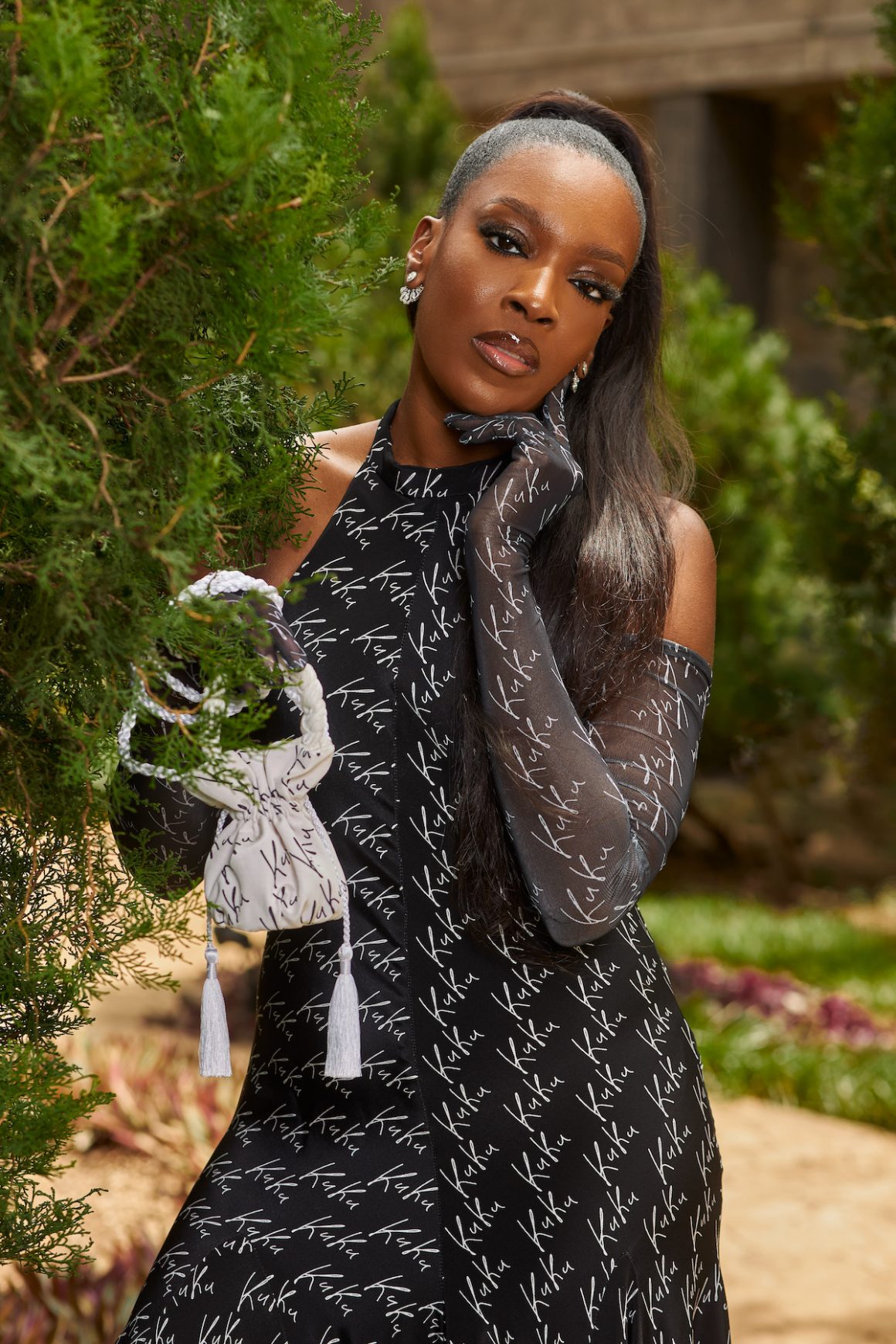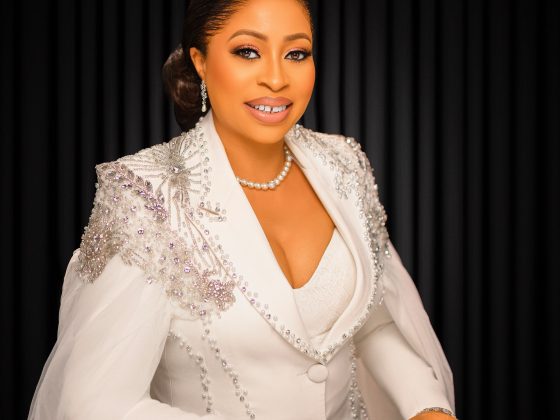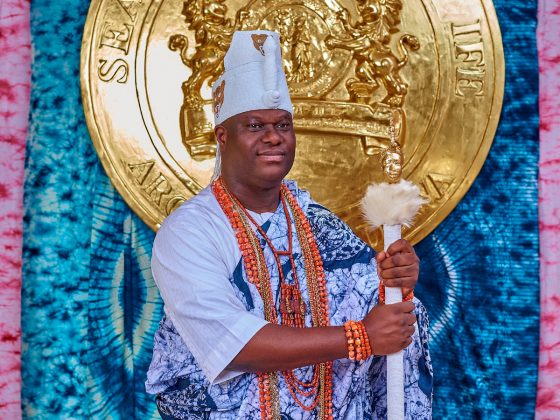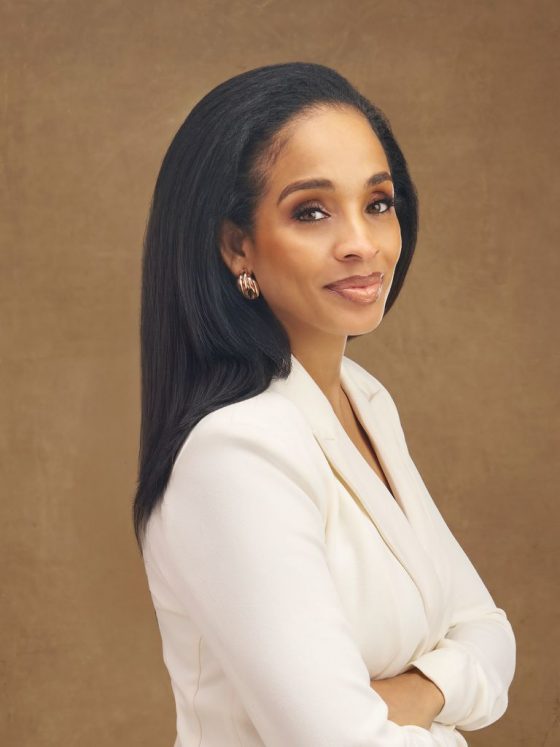Banke Kuku is a renowned textile artist and fashion designer whose unique designs have captivated the fashion world with her eponymous brand, Banke Kuku. Over the years, she has made a significant impact in fashion, textile design, and interior design, showcasing the rich cultural heritage of Nigeria while embracing modern design sensibilities.
Before launching her label, Banke gained invaluable experience working at various international fashion houses and with the leading interior company, Designers Guild. This led her to introduce the interior arm of her brand, which achieved great success and drew in orders from internationally esteemed clients such as Selfridges, Bazar et Grande Manger Tokyo, and more.
Three years ago, she entered the world of women’s fashion with garments that perfectly complemented her interior brand. In a short span of time, she has established herself as a force to be reckoned with in the fashion industry. Her collections have garnered praise for their vibrant colours, intricate textile patterns, and harmonious blend of traditional and modern elements. Celebrities have donned both her brand and collaborative designs. During the 2021 ARISE Fashion Week, Made in Nigeria, Conquering the World, Naomi Campbell strutted on the runway for the fashion label. The brand has also gained widespread recognition through its partnerships with local and international stockists, specialty retailers, and pop-ups worldwide. Notably, she became the first Nigerian designer to have her designs stocked at Galeries Lafayette in Doha.
In this interview, she discusses her creative journey, her approach to design, the future of Nigerian fashion, and her upcoming collection, “Eden”.
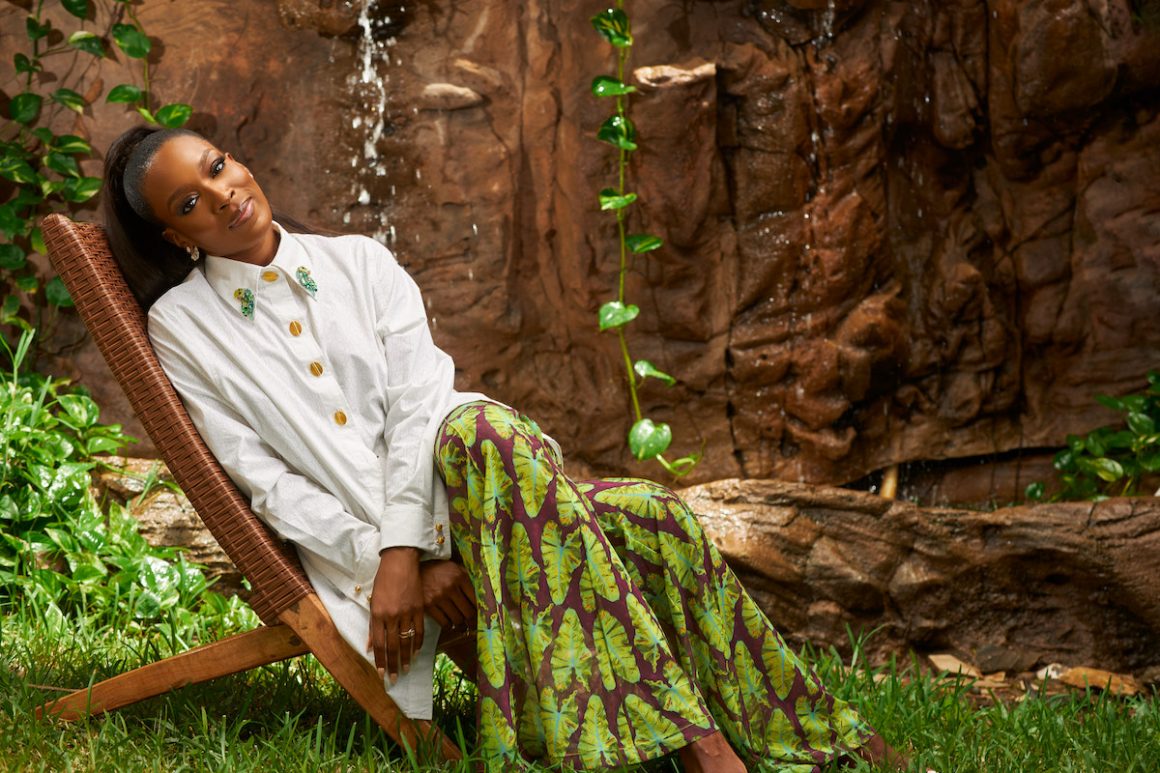
Could you share some of your earliest memories of fashion and art? How would you say these memories influenced your creative journey?
My first memories of fashion and art are from primary school; I won several art prizes, including the textiles prize at prep school a few times. I have always been creative, and I knew it was something I could never and would never let go of. My fashion journey has been a natural progression: from primary to secondary school to art college at Central Saint Martins and Chelsea College of Art and Design, and then to joining the industry, working for fashion houses Burberry and Jasim Di Milo. Eventually, my side hustle, freelancing as a textile designer, became my main hustle, owning my lifestyle brand, Banke Kuku.
The Banke Kuku brand includes textile design, interior design, womenswear and now, childrenswear. How do you manage to maintain a cohesive identity across these different areas?
My aesthetic has remained consistent throughout. I’m all about my prints, which tell Nigerian stories in a unique and striking way.
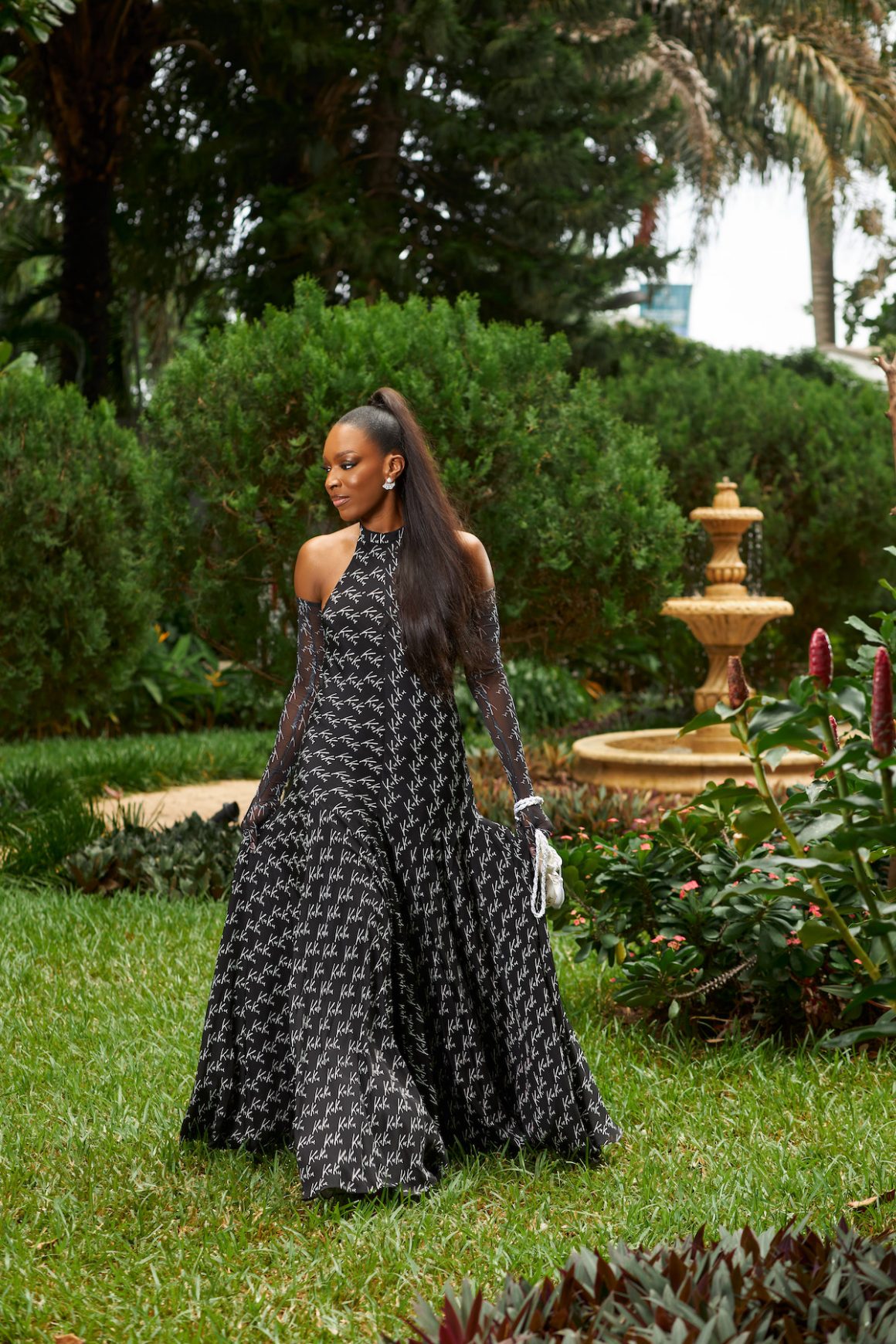
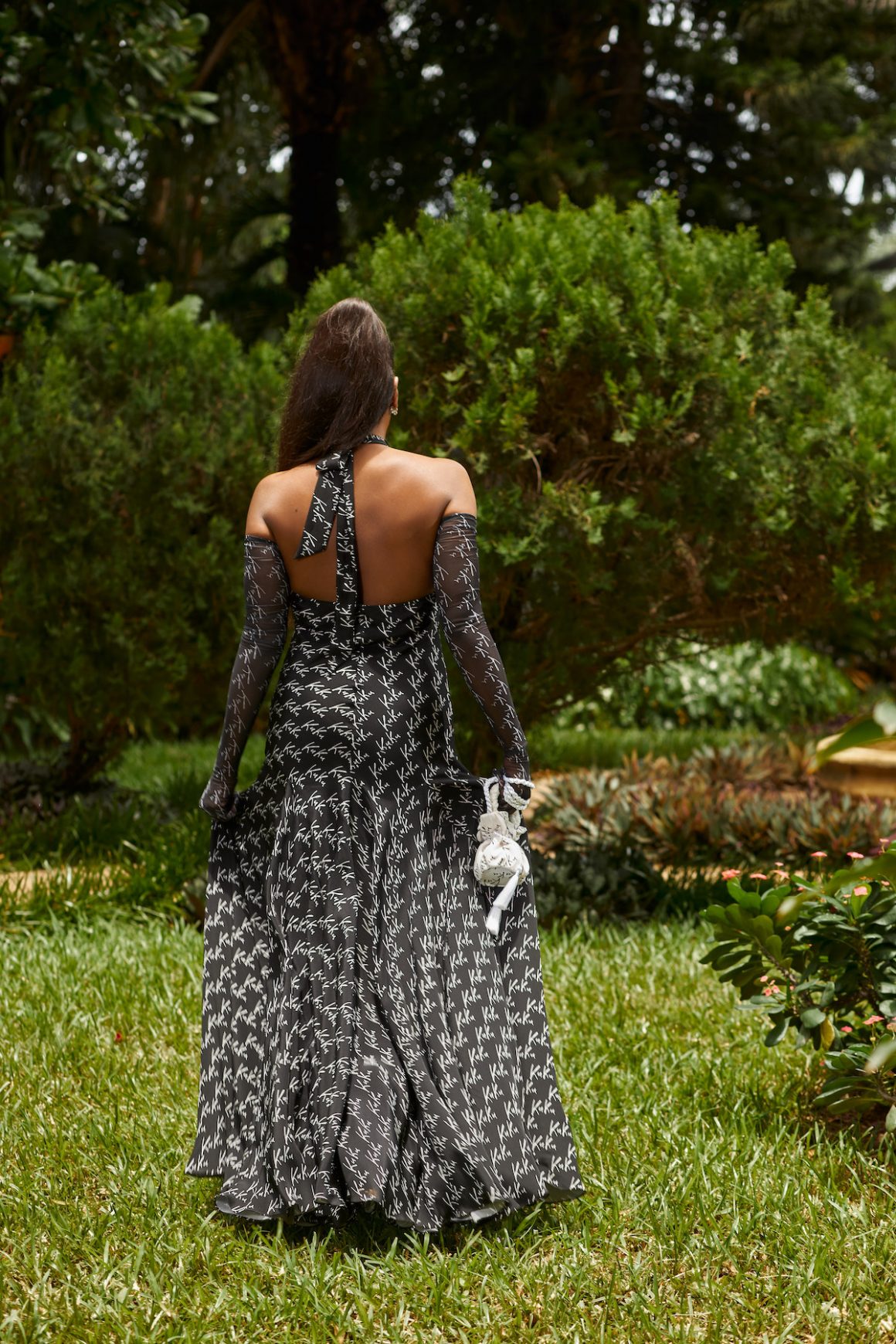
Your fashion label has made waves globally. Could you tell us about the inspiration behind your unique luxury loungewear designs and bold patterns?
I started my fashion label to complement my interior line. Banke Kuku is a lifestyle brand. I wanted to create pieces that you could wear at home and feel fabulous in and also throw on a pair of heels and go out in and still feel amazing. I call this occasional loungewear. We mainly work with the softest silks, which are so comfortable and, at the same time, glamorous.
The brand was born in 2019, just a few months before the COVID lockdown of 2020. There was an increasing demand for luxurious loungewear as people were at home and wanted to feel dressed up and comfortable at the same time. We needed to keep our prints vibrant and playful during this period to uplift people’s moods.
My prints tell stories about Nigeria, especially stories inspired by nature and the natural environment within the country. It’s important for Nigerian creatives to keep telling our Nigerian stories, as not only will these expressions of culture be documented in history, but it’s also about owning our own narrative for others to appreciate.
With most of the focus on the fashion label, do you still have the time to take on non-brand textile or interior design projects?
Unfortunately, I’m unable to take on non-branded textile or interior projects at this time, but I do take on collaborative projects. For example, we had a major collaboration with the American actress Gabrielle Union last year, and we have several exciting collaborations coming up, ranging from costume design for blockbuster films to collaborative products.
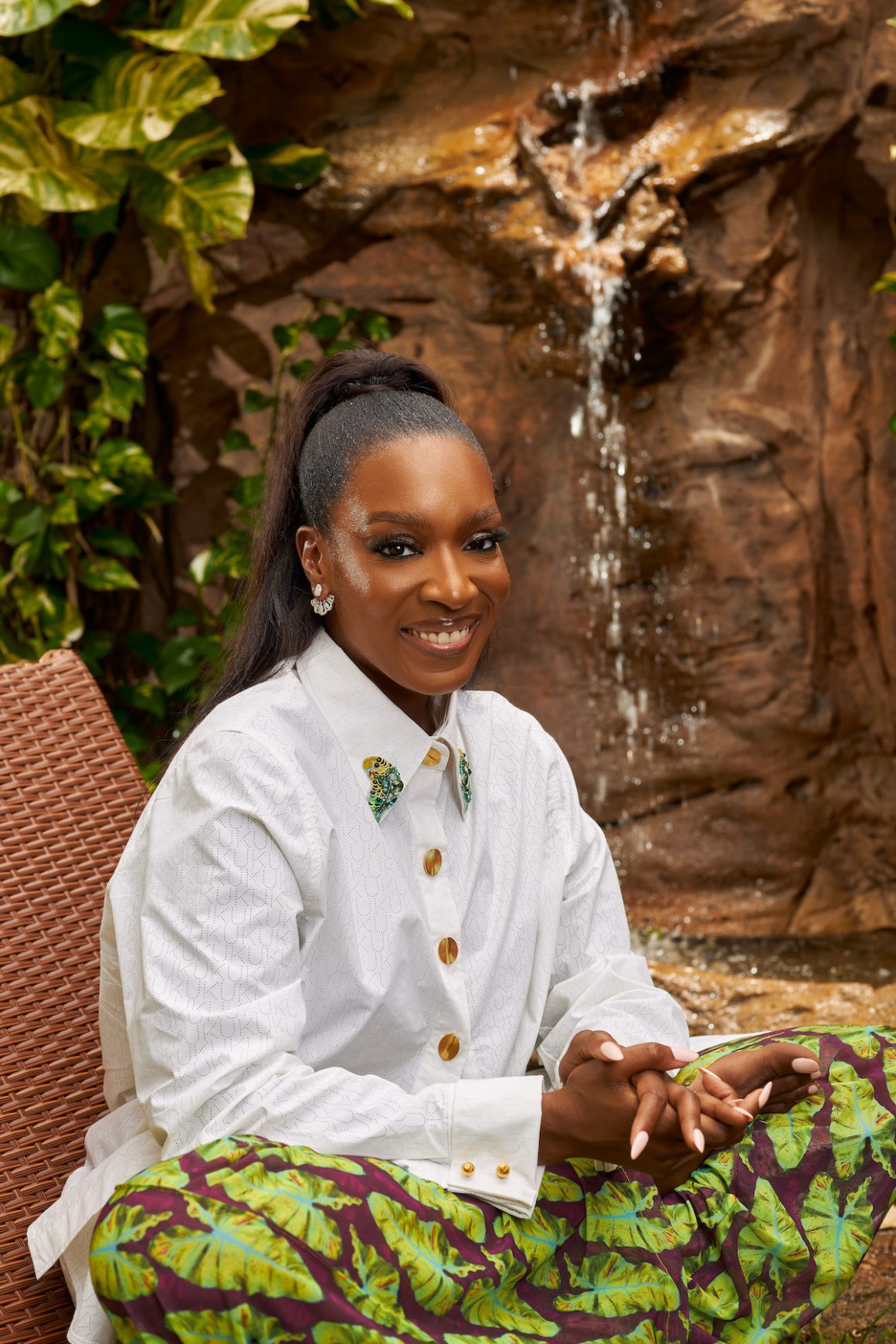
Can you explain your approach to design? How do you go from an initial idea to the final product? How do you know when a design is ready?
I always start with a concept, which will then take many twists and turns. There will be a lot of back and forth, and that first blank page is very daunting. If something isn’t working, I let it go. I may come back to it another time when I’m in a different mindset. From the initial concept, I start to design and experiment a lot until I get to my final piece. It takes a great deal of patience and time, as well as a supportive team. If you don’t have a team, you can get support from friends, family, or anyone who can give you constructive advice.
For what I do, which is occasional loungewear, I know a design is ready when it is versatile and can be worn in many different ways.
When faced with a creative block, how do you overcome it?
I take time out and move far away from creating. I do things to refresh my mind, like catching up with friends, learning new things, practising self-care, etc. Then, I come back to it with fresh eyes and a fresh mind.
Tell me about your experience with transitioning from textile design to fashion design. Did you find it to be a natural transition? Were there any challenges or difficulties you faced along the way?
I wouldn’t call it a transition necessarily, as fashion and textiles work alongside each other. But I worked for and with many fashion designers as a ‘textile designer’ before beginning my own line, so I was fortunate to have been behind the scenes of the process at fashion houses like Burberry and Jasmine Di Milo, as well as designing textiles for many fashion brands in Nigeria and abroad.
I started my fashion brand not long after I moved back to Nigeria. It was challenging but also very fulfilling, as I’m closer to my source of inspiration.
The challenges came from having to be 100% self-sufficient right from the start at every layer of your business. You have to build your own production line, be responsible for deliveries from doorstep to doorstep, generate your own energy, and more. This is a lot of responsibility and pressure for a startup fashion brand and can distract from your purpose, which is to create. I am so grateful to my incredible team for everything they do to support the brand.
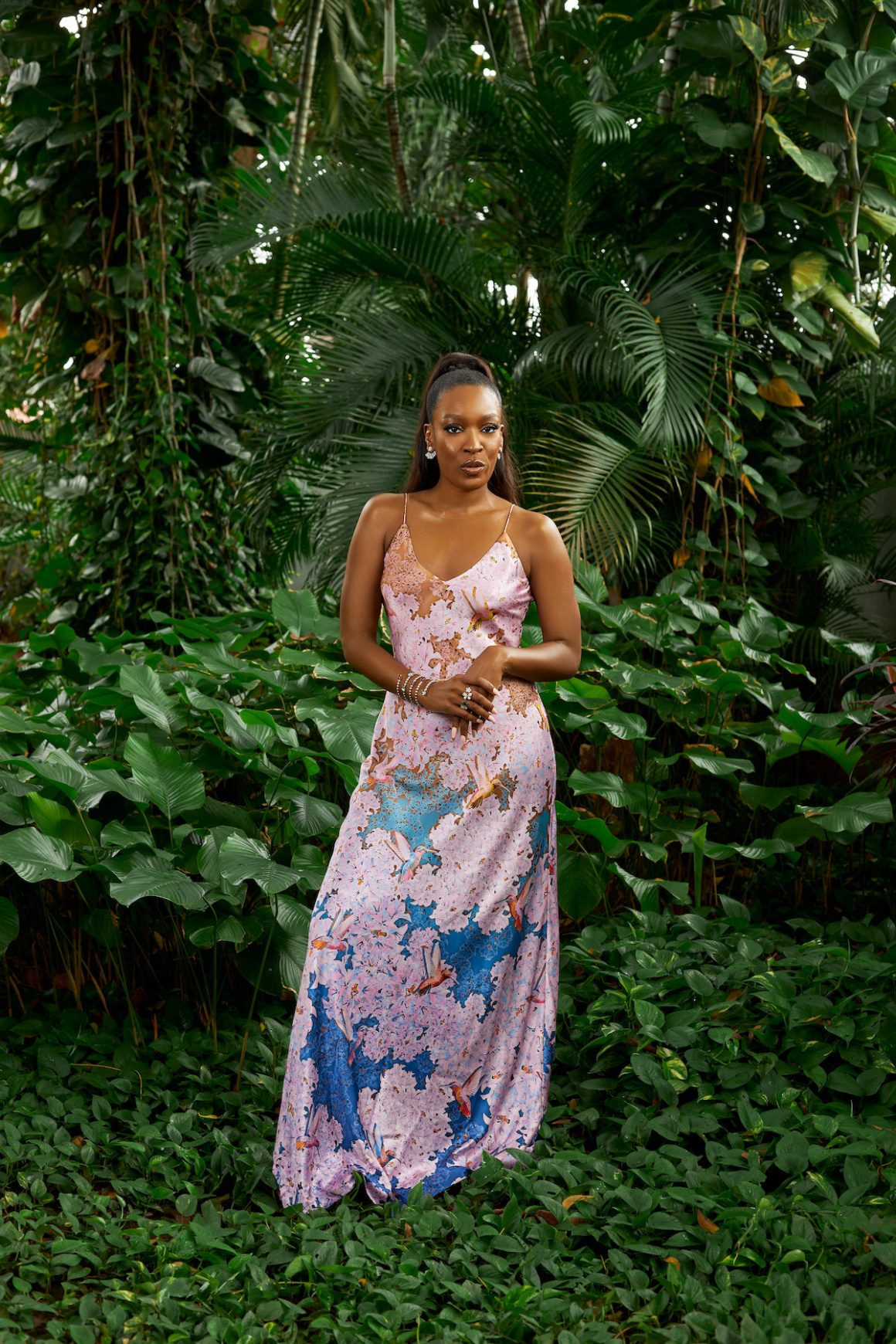
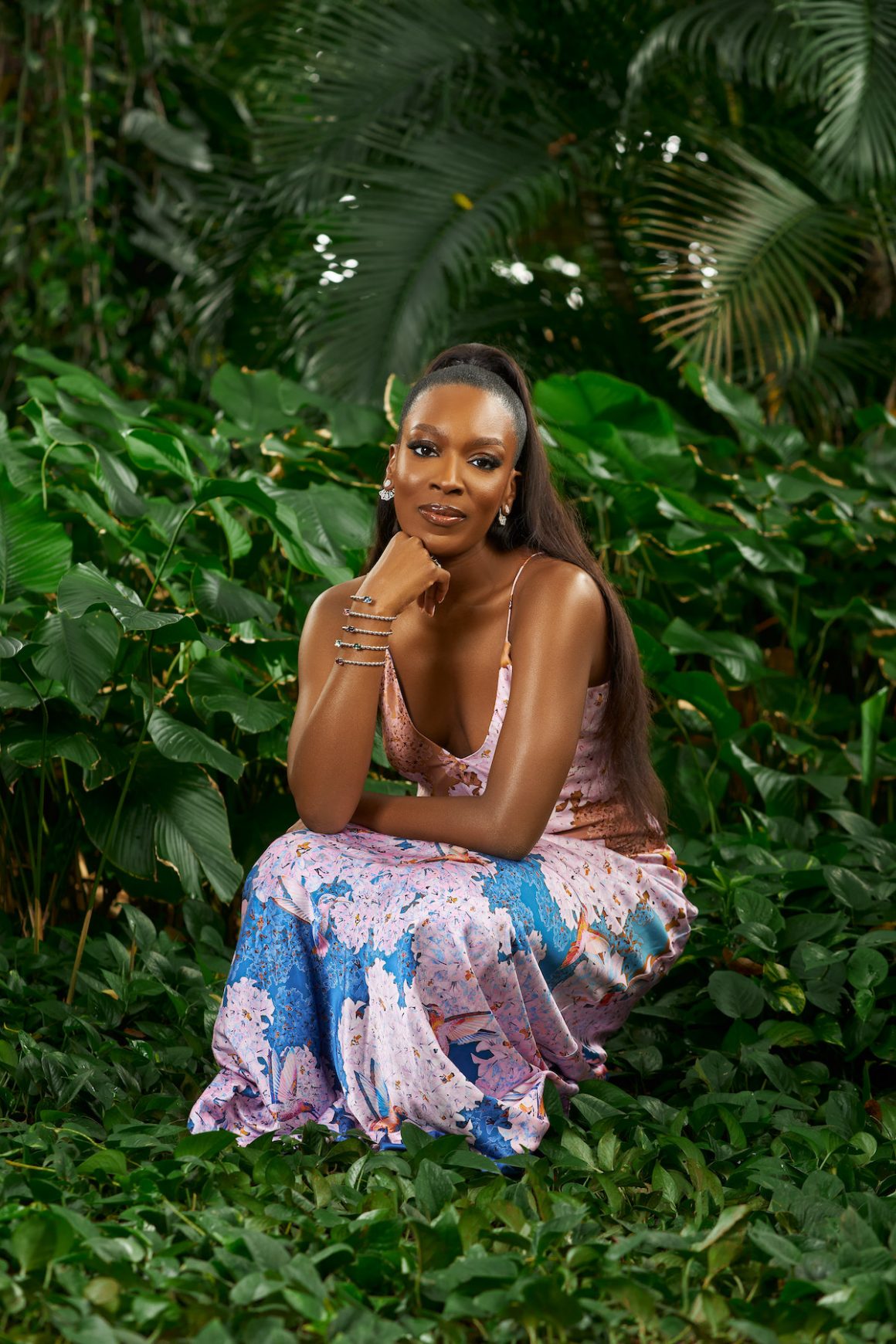
Throughout your career, you have established a remarkable reputation and cultivated a dedicated following who passionately support the Banke Kuku brand. In just this year alone, you had the honour of participating as a guest speaker on UBA’s Africa Day panel discussion titled “Innovation on the Continent for Growth” and also served as a distinguished guest judge during the Great British Sewing Bee’s West Africa Week. Reflecting on these accomplishments alongside numerous others, how do they make you feel?
I feel privileged to be able to speak about Nigerian fashion and represent the industry on a global and domestic level. It’s a very exciting time for the creative industry in Nigeria. Creativity has become the new currency.
What would you say has been your biggest moment so far, and why?
Making people feel good about themselves in my clothes has been the biggest accomplishment so far. I love making people feel happy. I call my community, offline and online, the Kuku Tribe (#KukuTribe). They really mean everything, and they bring my creations to life.
Nigeria’s fashion industry is gaining more recognition. What changes have you observed over the years, and what do you envision for the future of Nigerian fashion?
The industry is doing well, and I am grateful to be part of it. Designers are exporting globally, and brands are really raising the bar. I do think that there is a need for a push towards education not just at the design level but in the other segments of the industry, for example, in manufacturing and communication, so we can really own our own space in the fashion industry, from design to crafting to telling our stories.
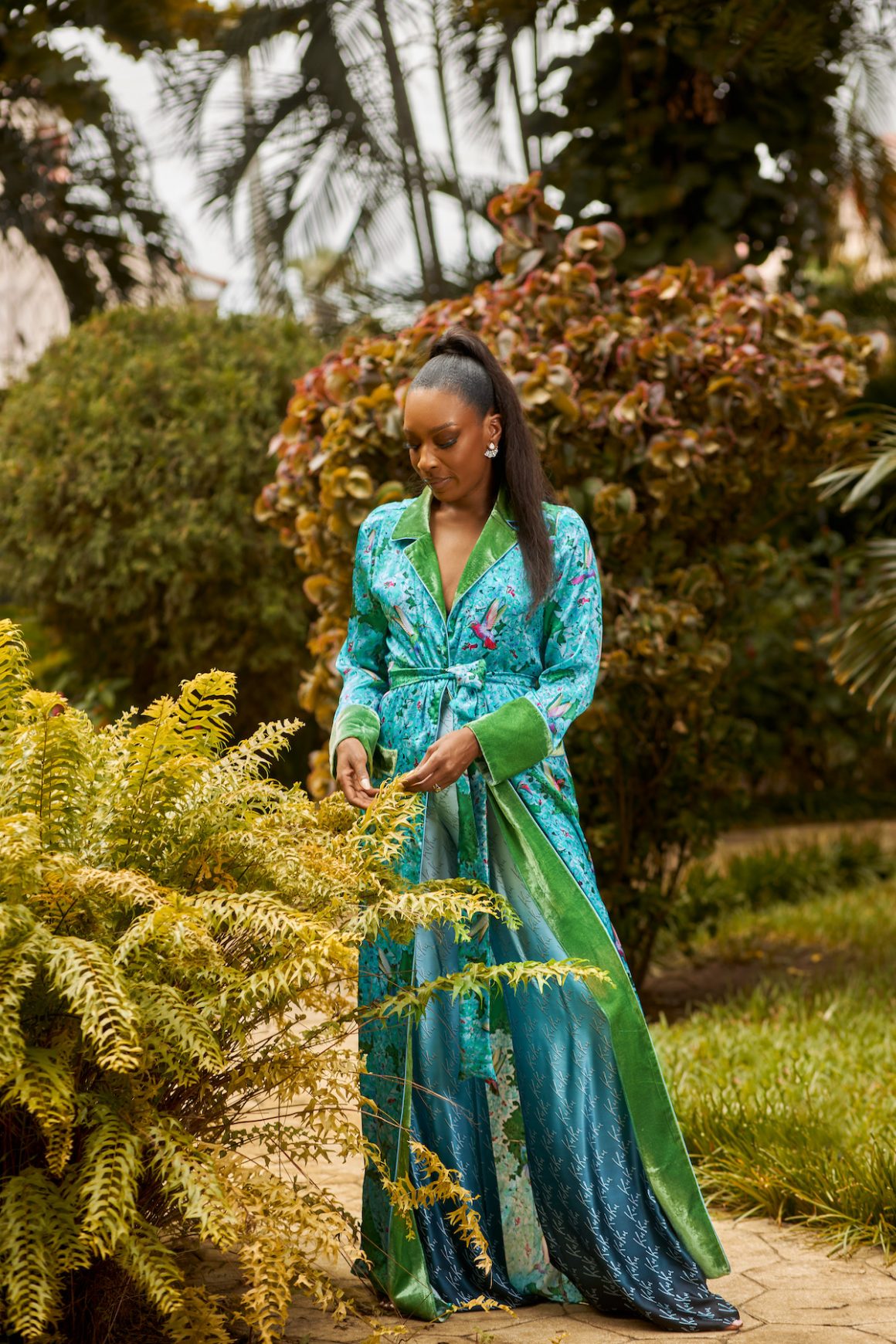
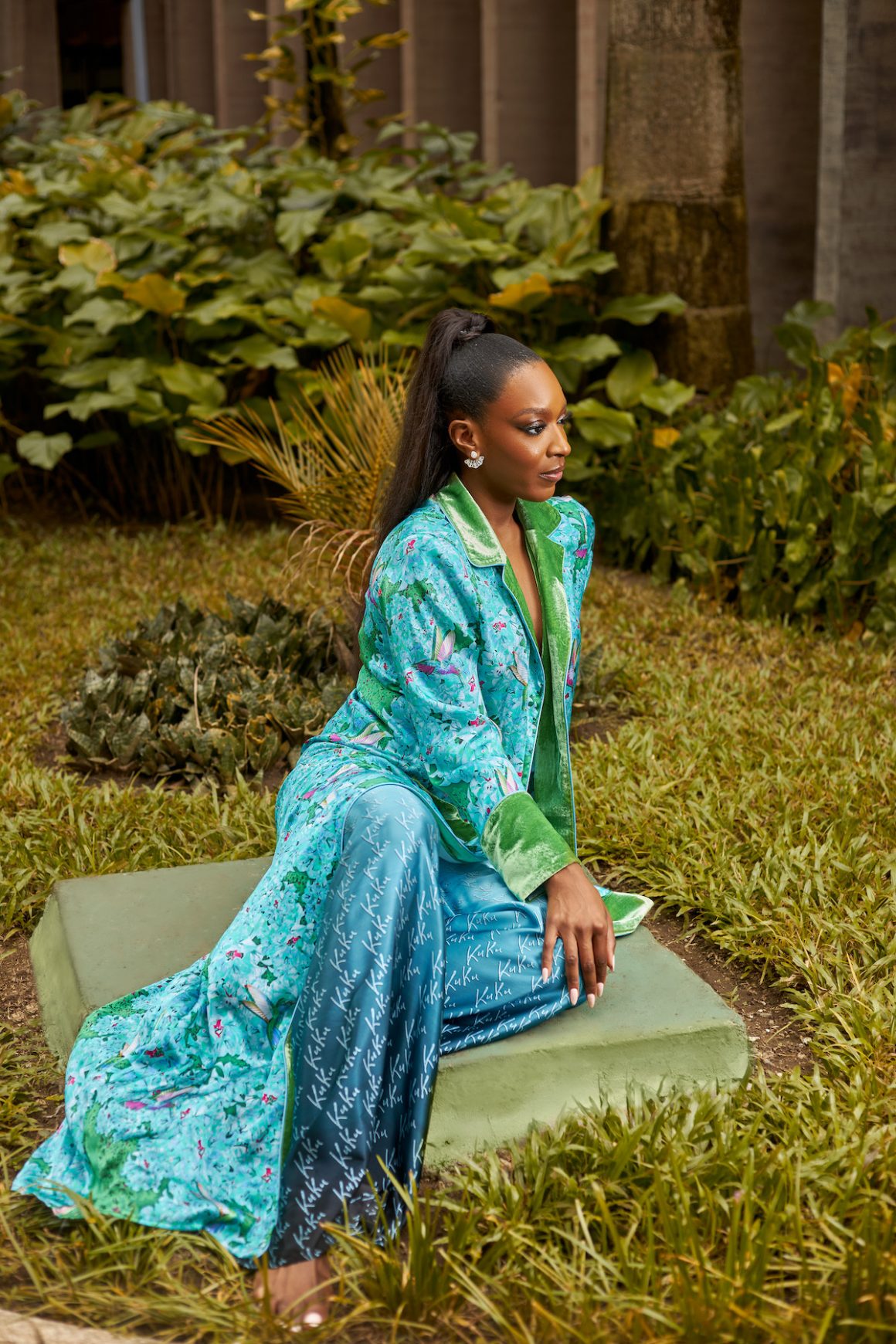
How is your brand taking steps towards sustainability in an industry known for its fast pace?
The brand is seasonless, meaning we don’t work according to the 3- to 4-month fashion season. This allows us to keep designs going for as long as they are loved. This way, we also minimise our waste.
You are set to launch a new collection with a show scheduled for October. What exciting offerings can we anticipate from the brand in this upcoming collection?
I’m really excited about our new collection, Eden. I’m really owning who I am with this collection and elevating what we do as a brand with some really stunning elements. The prints tell an incredible story of animals interacting with their natural environment, captivating tales of the plants and animals in Nigeria, hummingbirds whispering to bougainvillaea, and ladybirds in the midst of Nigeria’s national flower, the Yellow Trumpet. And our new signature monogram in colours inspired by the natural elements: earth, water, fire, and air.
The Eden collection is a manifestation of my passion for the outdoors, which is where I feel most Zen. It’s a dreamy and scenic collection with silhouettes reflecting the key essence of the brand’s occasional loungewear, delivered this season with an ethereal twist. Eden is an inclusive collection. It is for people of all sizes, races, and religions.
It has been twelve years since you launched the interior arm of your business and three years since your womenswear debut. Looking ahead, where do you see your brand in the next ten years?
We will have expanded our distribution channels globally, and we will continue to tell Nigerian stories through our fashion and textiles for the world to see. I can’t wait.

